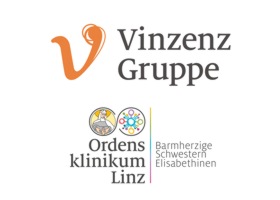Coronary vasoreactivity in subjects with thyroid autoimmunity and subclinical hypothyroidism before and after supplementation with thyroxineTools Traub-Weidinger, Tatjana, Graf, Senta, Beheshti, Mohsen, Ofluoglu, Sedat, Zettinig, Georg, Khorsand, Aliasghar, Nekolla, Stephan G, Kletter, Kurt, Dudczak, Robert und Pirich, Christian (2012) Coronary vasoreactivity in subjects with thyroid autoimmunity and subclinical hypothyroidism before and after supplementation with thyroxine. Thyroid : official journal of the American Thyroid Association, 22 (3). pp. 245-251. ISSN 1557-9077 2012 Thyroid Traub-Weidinger et al.pdf Restricted to Nur registrierte Benutzer Download (171kB) KurzfassungBACKGROUND
The association of subclinical hypothyroidism (SCH) with increased risk for cardiovascular disease is still controversial. This study aimed to examine coronary vascular reactivity by positron emission tomography (PET) in asymptomatic patients with SCH before and after levothyroxine (LT4) supplementation.
METHODS
Ten patients (7 women and 3 men; mean age 43±15 years) with untreated autoimmune SCH, defined by elevated levels of thyroid-stimulating hormone (mean TSH: 16.9±11.3 μU/mL), normal levels of free thyroxine (0.9±0.1 μg/mL), free triiodothyronine (3.2±0.4 pg/mL), and positive thyroid peroxidase antibodies were studied. Eight euthyroid subjects with similar low-risk cardiovascular risk profile served as controls. Myocardial blood flow (MBF) and coronary flow reserve (CFR) were quantitatively assessed with rest/stress N-13 ammonia PET at baseline and after 6 months of LT4 replacement therapy (given only to patients).
RESULTS
At baseline, stress MBF and CFR corrected (c) for rate pressure product (RPP) and myocardial vascular resistance (MVR) during stress were significantly reduced in SCH compared with controls (stress MBF: 2.87±0.93 vs. 4.79±1.16 mL/g/min, p=0.003; CFR: 2.6±0.73 vs. 4.66±1.38, p=0.004; MVR: 40.14±18.76 vs. 20.47±6.24 mmHg/mL/min, p=0.02). Supplementation therapy with LT4 normalized TSH in all subjects and was associated with an increase in CFR (2.6±0.73 vs. 3.81±1.19, p=0.003) and with a tendency toward a decrease in MVR. Differences in CFR between SCH and controls were also seen after correction of resting MBF for RPP.
CONCLUSIONS
In asymptomatic subjects with SCH due to thyroid autoimmunity, coronary microvascular function is impaired and improves after supplementation with LT4. This may partially explain the increased cardiovascular risk attributed to SCH.
Actions (login required) |
||||||||||||||
|


 Tools
Tools Tools
Tools
